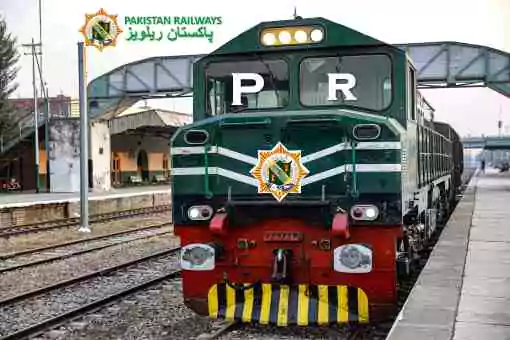Karachi, May 27, 2025 – Divisional Superintendent (DS) Pakistan Railways, Mehmood ur Rehman Lakho, has stressed the urgent need to shift cargo movement from roads to railways to ease Karachi’s growing transportation burden.
Speaking during a meeting at the Karachi Chamber of Commerce and Industry (KCCI), he highlighted that 99% of Pakistan’s cargo moves through Karachi, putting immense pressure on the city’s roads and causing serious damage to its already fragile infrastructure.
Lakho said that increasing the use of railways for cargo can help reduce traffic congestion, lower fuel costs, and protect the environment. “Rail transport is three times more fuel-efficient than road freight,” he stated, “which helps reduce carbon emissions, saves precious foreign exchange, and relieves the strain on Karachi’s highways.”
He noted that Pakistan Railways is focused on reviving and strengthening freight routes from Karachi to other industrial centers like Lahore, Faisalabad, and Peshawar. Karachi’s strategic importance as a commercial hub makes it essential to upgrade rail services from the city.
The meeting included senior officials from Pakistan Railways and the KCCI, including KCCI’s Senior Vice President Zia ul Arfeen and President Jawed Bilwani. Lakho shared that between 2013 and 2015, Pakistan Railways added more than 3,000 new wagons and 55 modern locomotives, increasing the capacity of each freight train to over 4,000 tons. This modernized fleet can play a major role in reducing the number of heavy trucks passing through Karachi.
However, he expressed concern over delays in the ML-1 project under CPEC. Without ML-1, Pakistan Railways cannot operate high-speed freight services efficiently between Karachi and northern cities like Multan and Rawalpindi.
Lakho also revealed that Pakistan Railways is exploring international freight links connecting Karachi to Moscow via Iran and Central Asia, offering new trade opportunities. He also highlighted plans to introduce Roll-on/Roll-off (RoRo) services, where trucks can be directly transported via trains from Karachi, bypassing city roads.
KCCI President Bilwani called for immediate collaboration between the business community and Pakistan Railways to revive cargo trains and reduce Karachi’s logistical challenges. He emphasized that Karachi cannot handle the nation’s cargo on roads alone and that railways must take the lead in reshaping the city’s cargo future.
